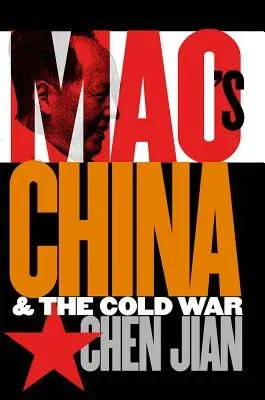Jian Chen
(Author)Mao's China and the Cold WarPaperback, 25 June 2001

Qty
1
Turbo
Ships in 2 - 3 days
In Stock
Free Delivery
Cash on Delivery
15 Days
Free Returns
Secure Checkout
Part of Series
New Cold War History
Part of Series
New Cold War History (Paperback)
Part of Series
New Cold War History
Print Length
416 pages
Language
English
Publisher
University of North Carolina Press
Date Published
25 Jun 2001
ISBN-10
0807849324
ISBN-13
9780807849323
Description
Product Details
Author:
Book Format:
Paperback
Country of Origin:
US
Date Published:
25 June 2001
Dimensions:
23.11 x
15.24 x
2.79 cm
ISBN-10:
0807849324
ISBN-13:
9780807849323
Language:
English
Location:
Chapel Hill
Pages:
416
Publisher:
Weight:
589.67 gm

